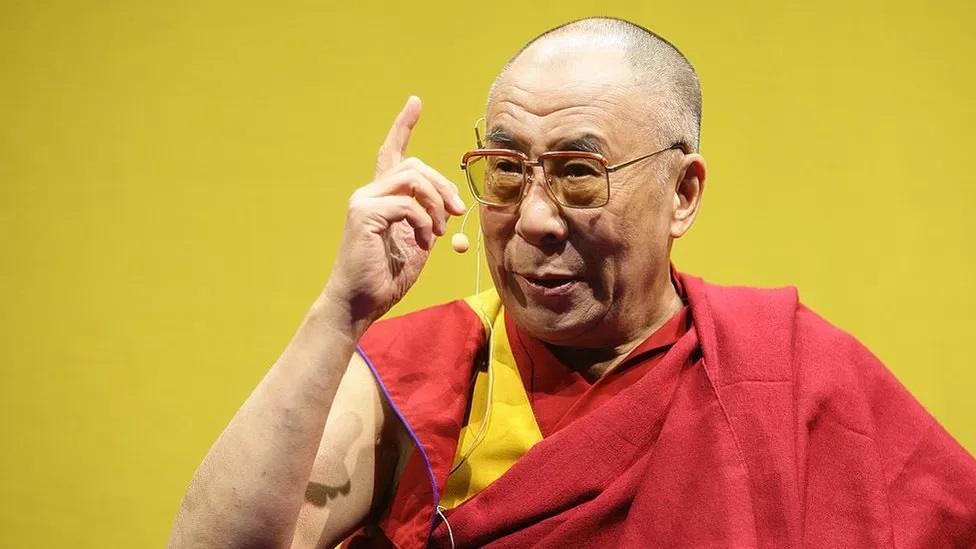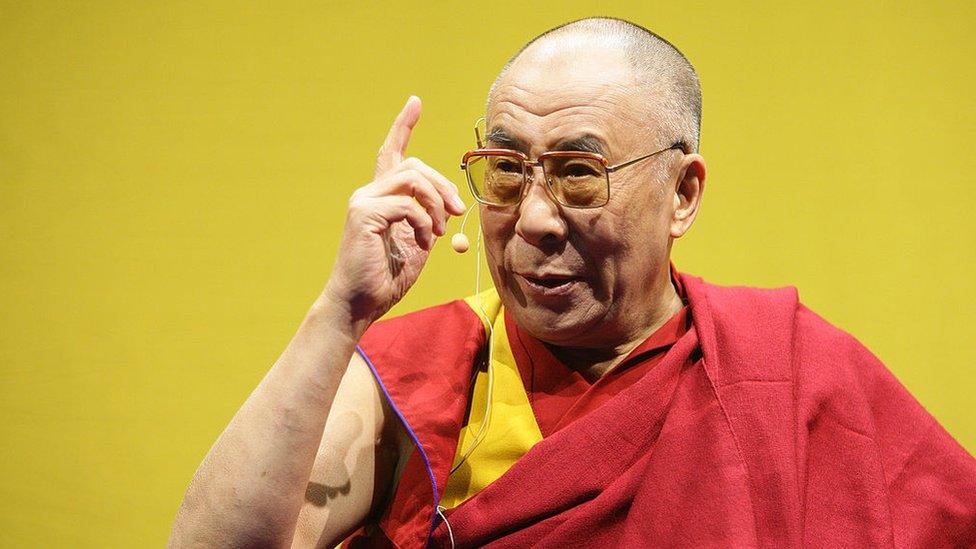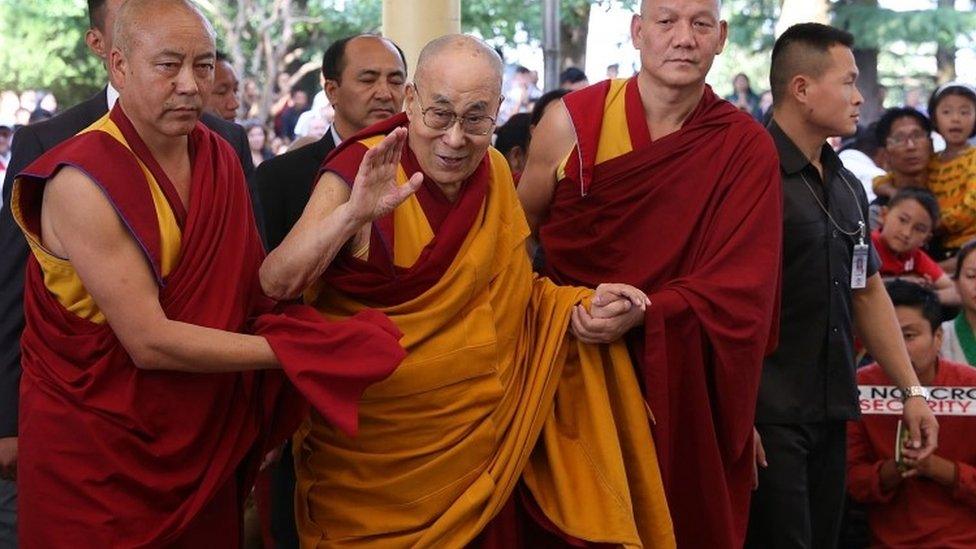Dalai Lama defended over tongue-sucking remark
- Published

Penpa Tsering has said that the Dalai Lama's actions have been misinterpreted
A top Tibetan leader has defended the Dalai Lama over a video that showed him asking a child to suck his tongue.
Penpa Tsering, head of Tibet's government-in-exile, has called the spiritual leader's actions "innocent" and said it demonstrated his "affectionate behaviour".
The video sparked outrage after it went viral on social media, with users calling his actions inappropriate.
The Dalai Lama's office has apologised over the incident.
On Thursday, Mr Tsering said the Dalai Lama's actions had been misinterpreted and that the controversy had hurt the sentiments of his followers.
He also said that the Dalai Lama has always lived in "sanctity and celibacy" and that his years of spiritual practice had taken him "beyond the sensorial pleasures".
Mr Tsering also claimed that investigations suggested "pro-Chinese sources" were behind making the video go viral on social media. He gave no evidence for the claim. He added that the "political angle of this incident cannot be ignored."
Though the incident appears to have taken place at the Dalai Lama's temple in Dharamshala on 28 February, the controversial video went viral on social media earlier this month. It has been viewed over a million times on Twitter.
In the video, the Dalai Lama can be heard asking the boy to kiss him on his cheek and then his lips after the boy asks if he can give him a hug.
The leader then put his forehead to that of the boy's, before sticking out his tongue, saying "and suck my tongue".
The video sparked international criticism with some right's activists saying that the spiritual leader's actions amount to child abuse.
In a statement issued by his office, the Dalai Lama said he wanted to apologise to the child and his family "for the hurt his words may have caused".
"His Holiness often teases people he meets in an innocent and playful way, even in public and before cameras. He regrets the incident," his office said, external.
The Dalai Lama has been living in exile in India since fleeing Tibet in 1959, following an uprising against Chinese rule there.
He courted controversy once before in 2019, when in an interview with the BBC he said that any future female Dalai Lama should be "attractive". His office later apologised for his remarks.
BBC News India is now on YouTube. Click here, external to subscribe and watch our documentaries, explainers and features.

Read more India stories from the BBC:

Related topics
- Published10 April 2023

- Published2 July 2019
